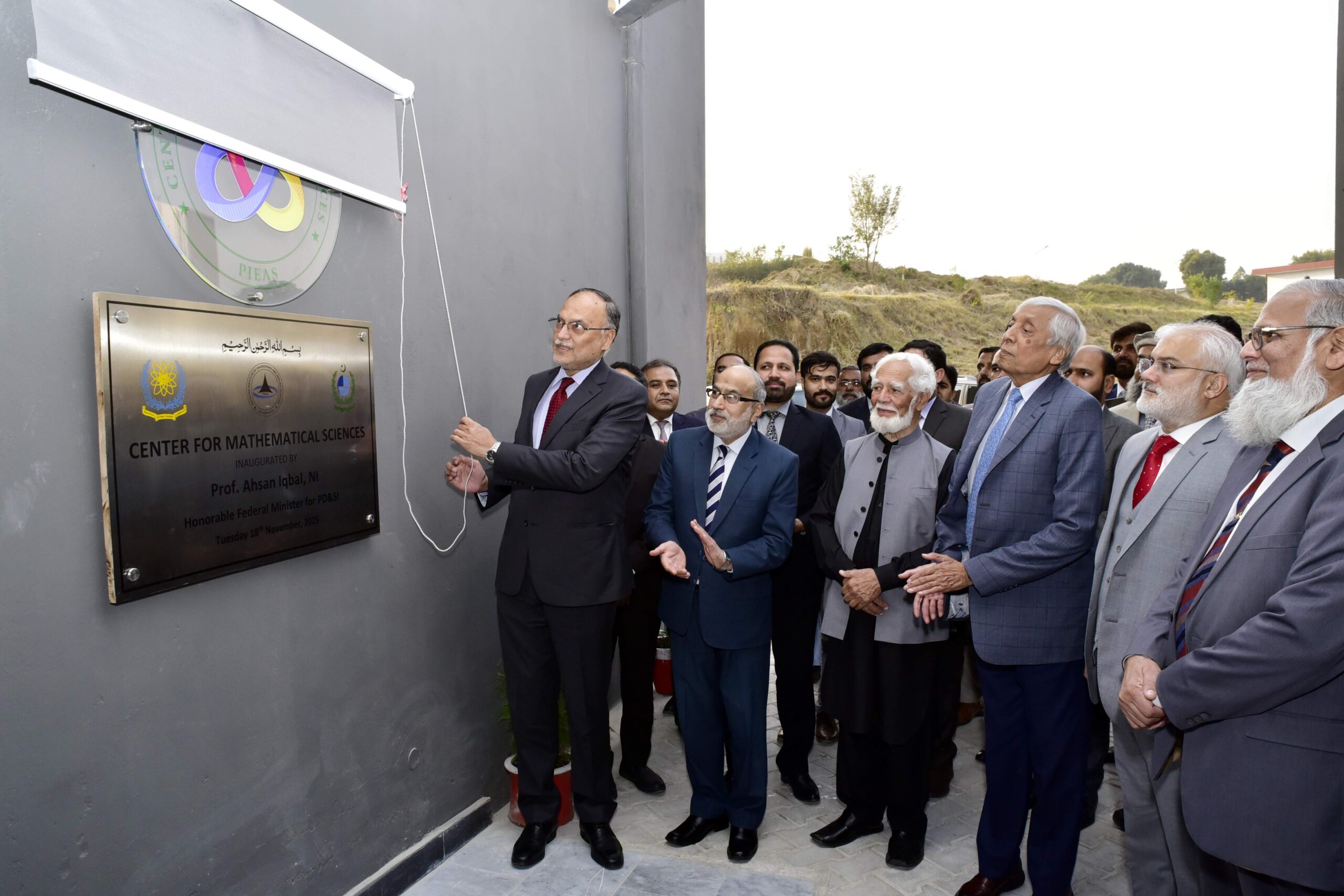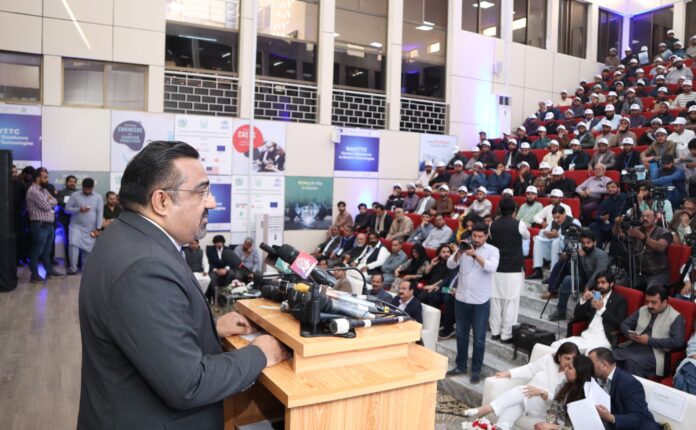ISLAMABAD — Federal Minister for Planning, Development and Special Initiatives, Prof. Ahsan Iqbal, inaugurated the newly established Center for Mathematical Sciences (CMS) and a state-of-the-art High-Performance Computing (HPC) facility at the Pakistan Institute of Engineering and Applied Sciences (PIEAS) on Tuesday. The launch marks a significant milestone in Pakistan’s efforts to strengthen its research infrastructure and transition toward a technology-driven economy.
The inauguration ceremony was attended by Chairman Pakistan Atomic Energy Commission (PAEC), Dr. Raja Ali Raza Anwar, who accompanied the minister during a tour of the CMS laboratories.
Vision 2025 project aims to boost national research capacity
Speaking to media representatives, Prof. Ahsan Iqbal expressed his enthusiasm for the project, stating, “I am very excited to inaugurate the Center for Mathematical Sciences and HPC facility at PIEAS and I would like to congratulate both PIEAS and PAEC for this achievement. It is high time that we start initiatives which serve to improve the stature of our dear motherland rather than prioritising individual impact factors.”
He emphasized the need for universities to introduce research programs that contribute to transforming Pakistan’s economy into a knowledge- and technology-based system. The CMS and HPC facilities were approved in 2017 under the government’s Vision 2025 framework, which aims to modernize the country’s scientific and technological capabilities.
Prof. Iqbal added that successful nations are those that achieve high levels of knowledge and technological advancement. He noted that the new facilities contribute to the URAAN Pakistan initiative, which seeks to establish world-class research and development infrastructure across the country.
Al-Khwarizmi HPC Cluster sets new national benchmark
With continued support from Prof. Ahsan Iqbal, PIEAS has commissioned the Al-Khwarizmi HPC Cluster, now recognized as the most powerful CPU-based computational facility in Pakistan. The system boasts a peak performance of 350 teraflops (TFLOPs) and includes 58 compute nodes — 48 standard and 10 large-memory — totaling 5,104 CPU cores, 40 terabytes of RAM, and 2 petabytes (2,048 TB) of storage. All components are interconnected via InfiniBand NDR at 200 Gbps, enabling high-speed data transfer for compute-intensive tasks.
This infrastructure is designed to support a wide range of scientific applications, including modeling, simulations, artificial intelligence, data analytics, and other advanced research domains. It is expected to significantly reduce Pakistan’s reliance on overseas computing resources and empower local researchers to address critical national challenges.

Access and integration with national research ecosystem
The HPC facility will be accessible to universities, research institutions, and industry partners across Pakistan through a proposal-based access system. Training and technical support will be provided to new users to ensure effective utilization of the system. The facility will also operate in coordination with other HPC clusters being developed by the Higher Education Commission (HEC), forming a broader national computing network.
CMS project includes academic and residential infrastructure
The Center for Mathematical Sciences (CMS) at PIEAS was approved through HEC in 2017, during Prof. Ahsan Iqbal’s previous tenure as Federal Minister for Planning and Development. The project includes not only the HPC cluster but also eight specialized laboratories focused on Applied Mathematical Sciences and Computational Mathematics.
In addition, a dedicated Academic Block and a Researchers Hostel have been constructed to support long-term academic and research activities. These facilities are intended to produce highly trained personnel and contribute to Pakistan’s goal of achieving technological self-reliance.
PIEAS continues to lead in engineering and applied sciences
PIEAS, which operates under the aegis of the Pakistan Atomic Energy Commission, is widely regarded as the country’s leading engineering university. Originally established as a Reactor School in 1967, PIEAS was granted degree-awarding status in 2000 and has since expanded its academic and research footprint.
Chairman PAEC Dr. Raja Ali Raza Anwar thanked Prof. Ahsan Iqbal for his vision and continued patronage, which he said played a pivotal role in bringing the CMS and HPC projects to fruition.
For climate-related stories, visit: The Green Post







